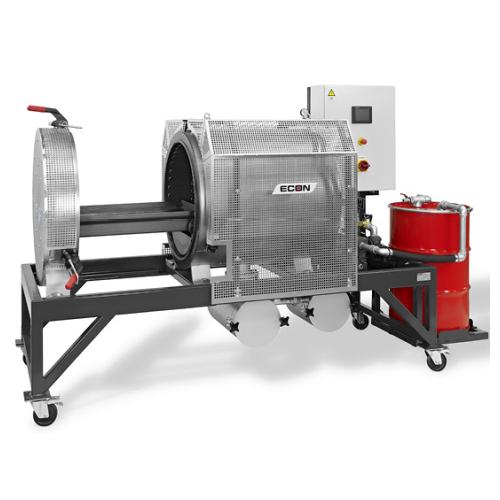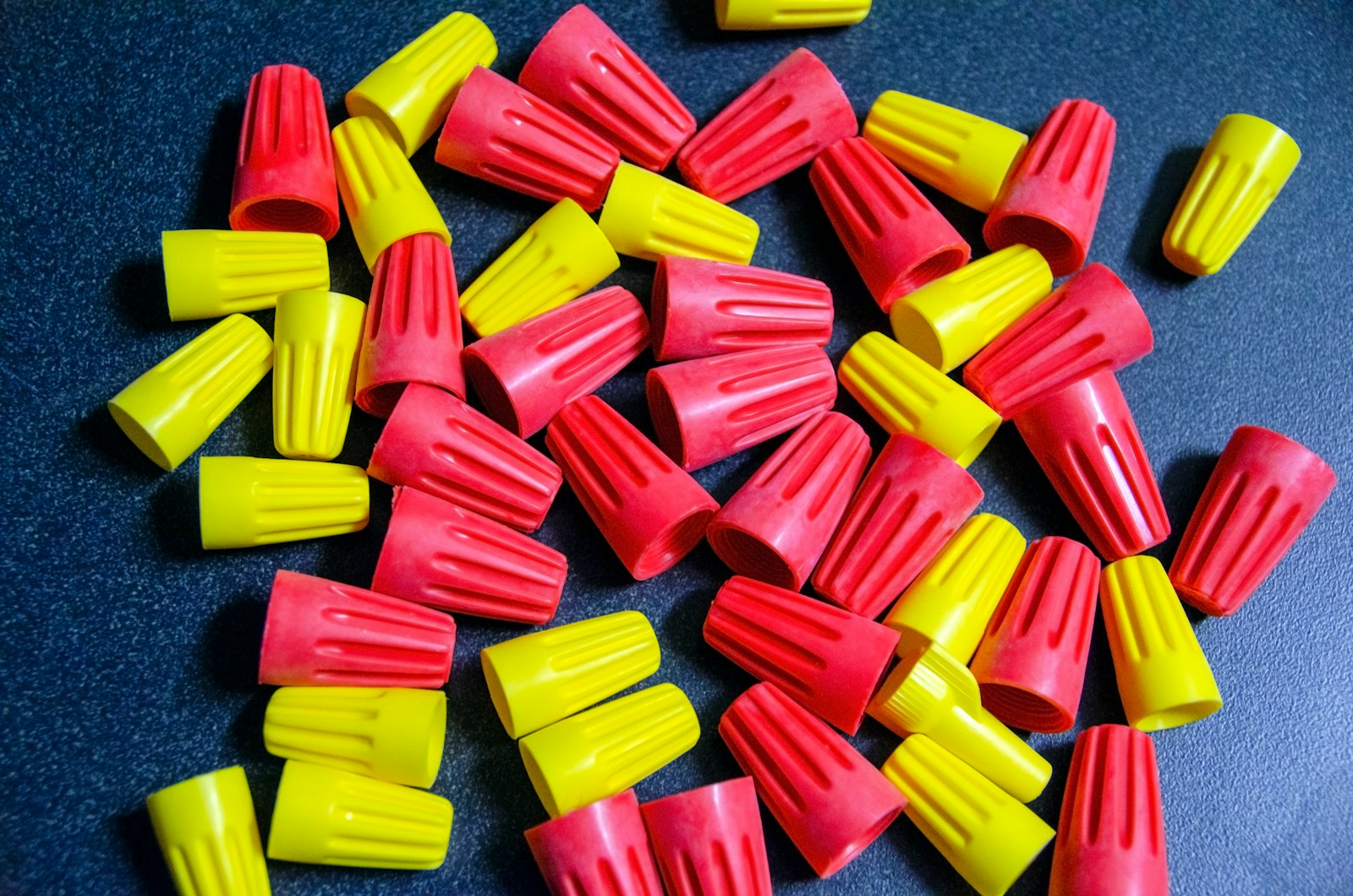Pyrolysis furnace for thermoplastic and filter parts cleaning
Efficiently clean extrusion and filter parts by removing thermoplastics and mixed plastics without chemical agents, ensuring extended tool lifespans and operational precision in manufacturing and recycling processes.

Cleans and Reconditions Extrusion and Filter Parts
The Pyrolysis Furnace EPO series from ECON GmbH excels in the environmentally friendly cleaning of extrusion and filter parts through vacuum-assisted pyrolysis. Designed for professionals in the plastics and polymer industries, the furnace efficiently removes thermoplastics and mixed plastics without the use of cleansing agents. The process involves a gradual temperature increase within a vacuum chamber, initiating pyrolysis to decompose polymer residues. This method ensures the integrity of dies, screen parts, and other sensitive components, which are cleaned residue-free, extending their operational life.
With a range of models from EPO 100 to EPO 1800, capacities cater to various scales of operation, with the largest model supporting up to 750 kg. ECON’s pyrolysis furnaces are equipped with a reliable, low-maintenance oil-lubricated vacuum pump and an activated carbon filter to handle exhaust gases, achieving emission-free operation. The inclusion of a collecting tray captures plastic residues, minimizing waste. The systems are designed for batch processing and can be manually operated with high efficiency, offering significant energy savings by eliminating the need for process water.
Ideal for plastics manufacturers, extrusion companies, and industrial cleaning services, the furnace’s integration into production lines is straightforward, serving as a critical step in maintenance and reconditioning of tools and components. Customization options and engineering support are available to meet specific plant requirements, ensuring seamless adaptation into existing workflows.
Benefits
- Prolongs the lifespan of tools and components by ensuring thorough and gentle cleaning.
- Minimizes operational costs through energy-efficient vacuum technology and no need for process water.
- Enhances environmental safety with zero emissions due to an integrated activated carbon filter.
- Facilitates high efficiency and quick cleaning cycles, reducing equipment downtime.
- Offers flexible processing with customizable configurations to suit various production requirements.
- Applications
- Thermoplastics, Extrusion parts, Mixed plastics, Filter parts
- End products
- Polymer filters, Screen packs, Die plates, Melt filters, Extruder screws
- Steps before
- Preparation of extrusion and filter parts, Placement of parts on drip grate or baskets
- Steps after
- Residue removal with compressed air, Cooling of steel parts
- Input ingredients
- thermoplastics, mixed plastics, polymer residues, dies, screen parts, extrusion parts, filter parts
- Output ingredients
- residue-free parts, collected plastic residues, gases, cleaned parts, steel parts, compressed air cleaned parts
- Market info
- Working Temperature 1
- Variable
- Working Temperature 2
- Variable
- Load Capacity
- 40–750 kg
- Charging Height
- 700–1, 150 mm
- Charging Chamber Diameter
- Ø 214–900 mm
- Charging Chamber Length
- 263–1, 600 mm
- Cleaning Process
- Pyrolysis
- Vacuum Pump
- Oil-lubricated
- Handling
- Easy
- Maintenance
- Low
- Emission Control
- Activated Carbon Filter
- Automation
- Automatic Cycle Termination
- Working Mechanism
- Pyrolysis under vacuum
- Automation Level
- Automatic cleaning process
- Integrated Steps
- Temperature control and vacuum air evacuation
- Cleaning Process
- Pyrolysis incineration without oxygen
- Energy Efficiency
- Oil-lubricated vacuum pump minimizes costs
- Residue Collection
- Collecting tray for plastic residues
- Emissions Control
- Activated carbon filter
- Batch vs. Continuous Operation
- Batch operation
- Corrosive resistance (e.g. acids)
- High
- Density/Particle Size
- Various thermoplastics and mixed plastics
- Cleanability
- Residue-free
- Thermal compatibility
- High-temperature tolerance for various polymers
- Mechanical compatibility
- Protection of sensitive parts from warping
- Charging Chamber
- Ø 440 x 780 mm
- Charging Height
- 1, 100 mm
- Load Capacity
- 700 kg
- Machine Footprint
- Varies by model size
- Basket Type
- Freely accessible drip grate or baskets
- Discharge Method
- Collecting trough beneath the unit
- Control panel type
- Precision temperature setting
- Integration possibilities
- Remote maintenance capabilities
- Load capacity options
- 40 kg to 750 kg
- Charging height options
- 700 mm to 1, 150 mm
- Charging chamber sizes
- Ø 214 x 263 mm to Ø 900 x 1, 600 mm
